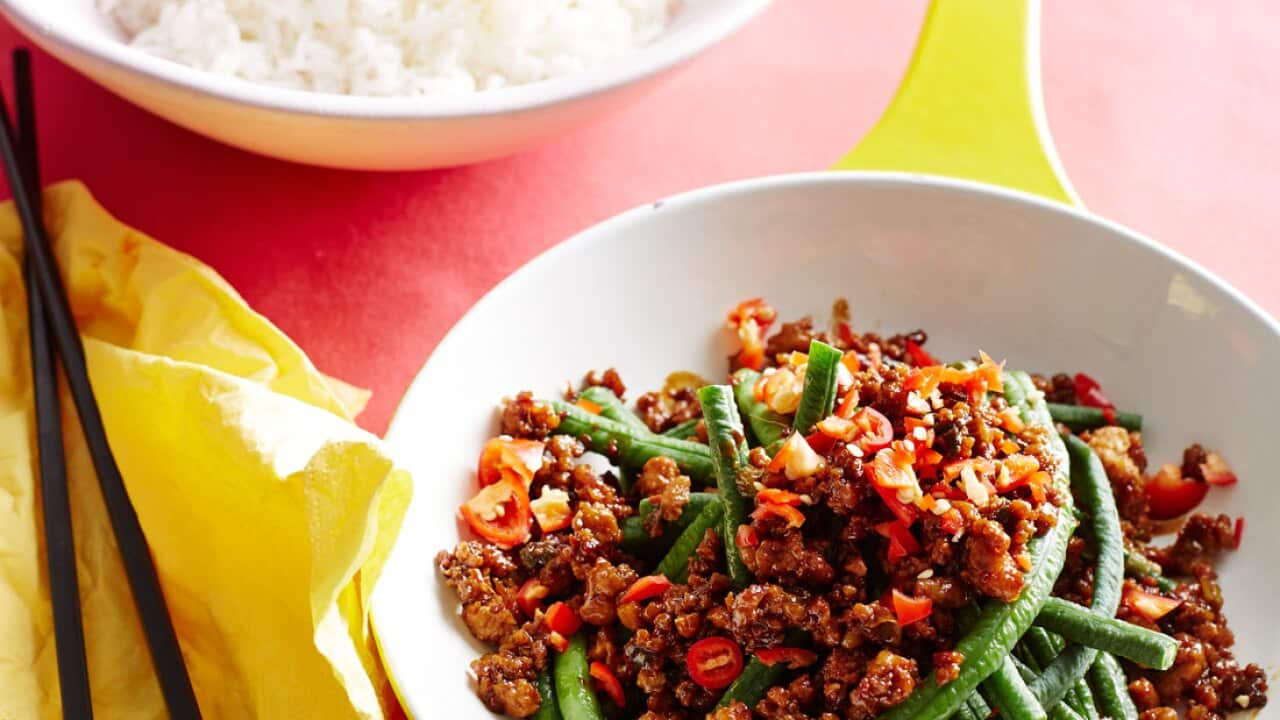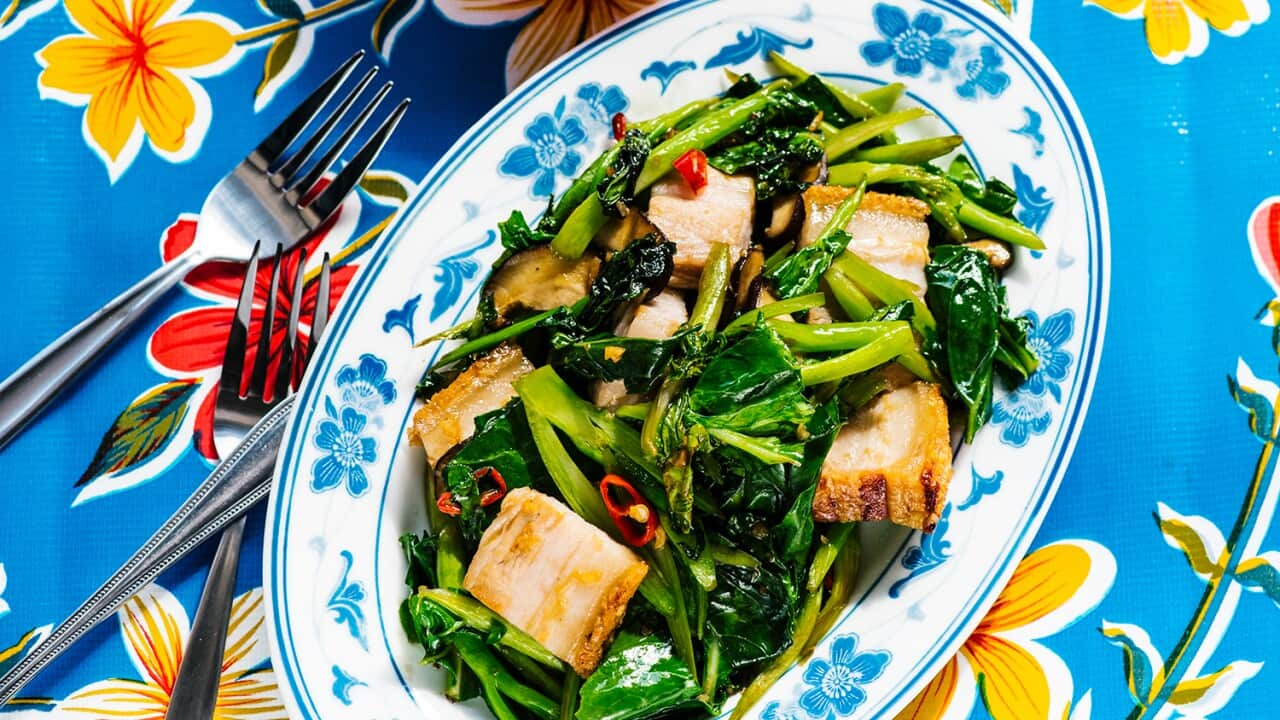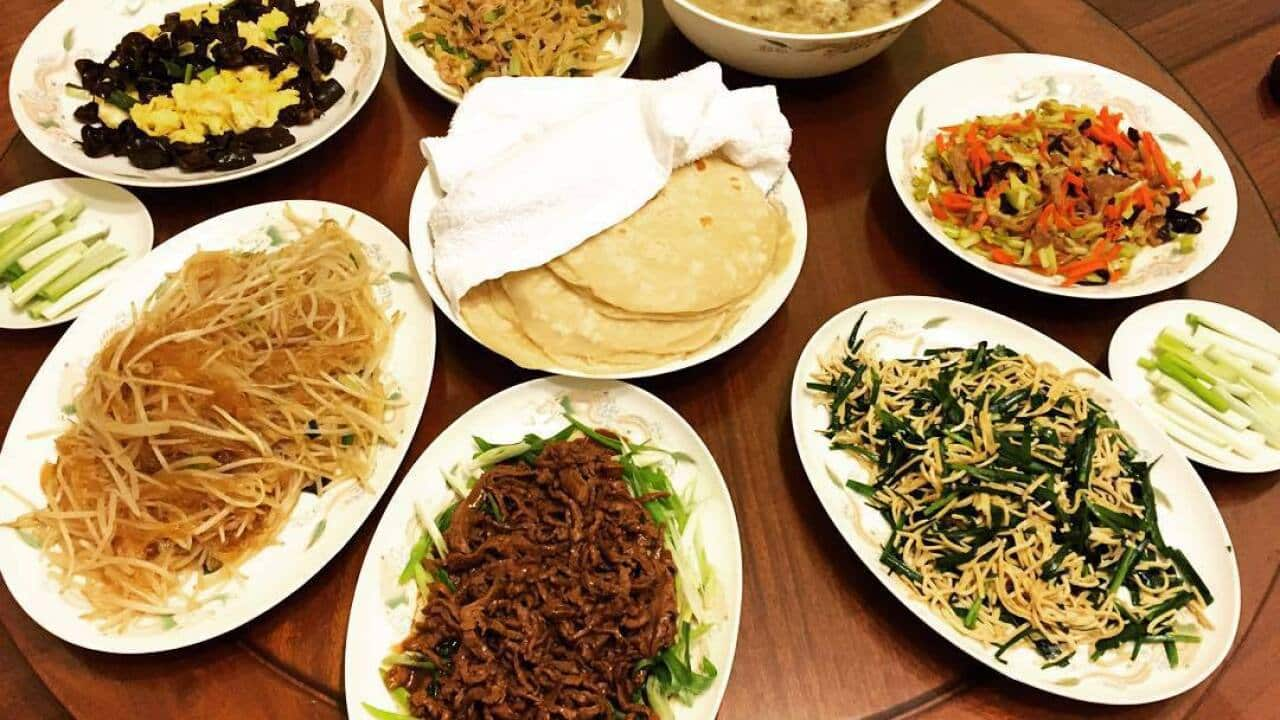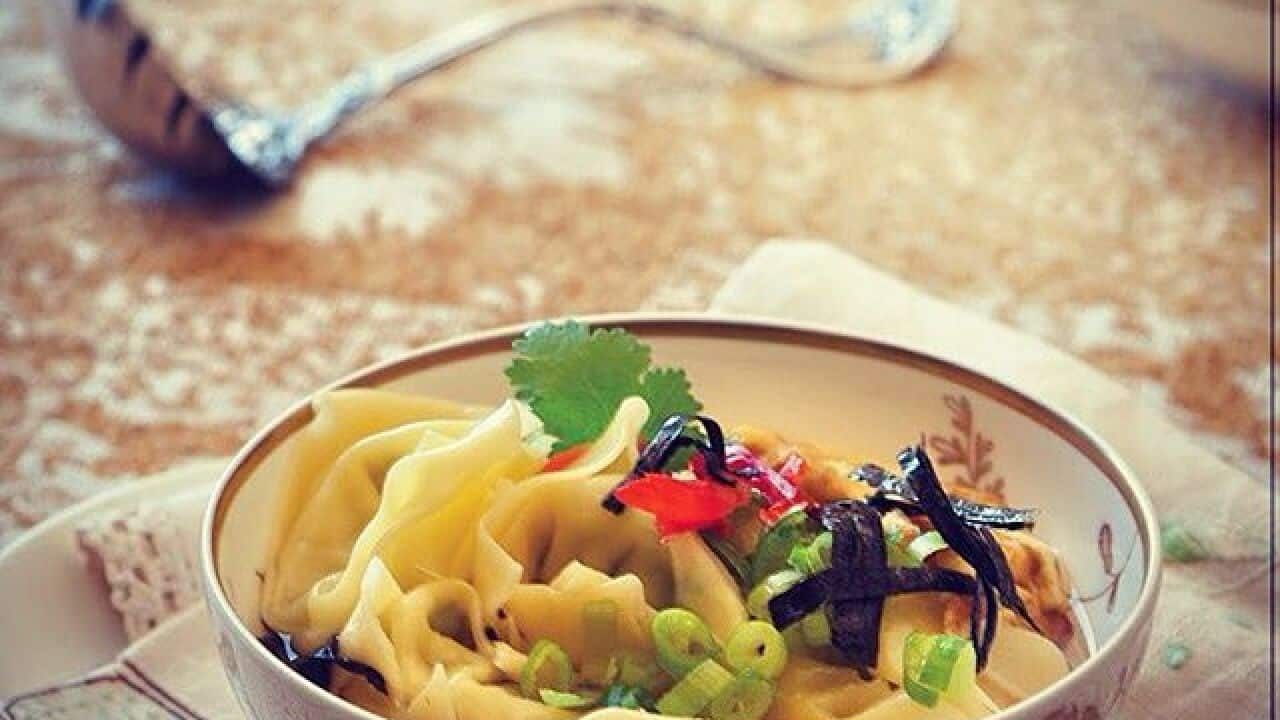Ge da tang is a soup from northern China that features small knots of dough and is simple to cook. This makes it a suitable recipe for working parents.
Many people say that the dough knots are like Italian gnocchi pasta. To make them, use a flour mixture to form small knot-like pieces. Once done, add them to the soup. It'll warm you up on a freezing day.
My parents, who still live in China, usually use leftover dough to make the knot dumplings. Remembering how they make them makes me miss them badly, especially during the COVID-19 pandemic.
We haven't seen our parents for a while. In fact, we haven't seen my dad for almost five years now. And he hasn't met our youngest child, who was born after his visit to Australia from China in 2016. Ge da tang has always been my father's favourite food. Even though I often tell him that it has too many carbs and may cause diabetes, he doesn't listen.
Ge da tang has always been my father's favourite food. Even though I often tell him that it has too many carbs and may cause diabetes, he doesn't listen.

The knot-shaped dumplings in the soup are only the size of a $1 coin. Source: Angie Cui
When I first tried this dish, the tiny knots in the bowl immediately caught my eye. They were adorable. Later, I found out the dish's translation. Ge da tang is also known as mian ge da tang. Mian means flour. Ge da has various meanings, such as a rope knot or a mole, lump or pimple. However, they are not attractive translations. Tang means soup.
You can be creative with the soup base nowadays. You can have a vegetarian soup (a lot of recipes use egg and tomatoes), meat (you can even include meatballs) and seafood (such as shrimps or mussels).
Ge da tang was the best food when I was a little kid.
When my dad was younger and living with his family in the countryside, they didn't have enough money to purchase meat and vegetables. Thus, my grandma showed my dad how to use the leftover dough to create this fantastic dish. The ingredients are simple: the flour is the soul, and the vegetables are the accessories. My dad once told me: "Ge da tang was the best food when I was a little kid."
The dough is simple to prepare. The small knots can be any shape; you don't have to make a perfect round ball or a specific shape. Just use your fingertips to grab a tiny amount of dough, then put it directly into boiled water. Because of this cooking technique, many people also call it 'dough drop soup'. To make the dish pretty, my dad usually adds his favourite chopped potatoes and tomatoes. On the other hand, my mum loves to add an egg and sprinkle some chopped greens into the soup.
To make the dish pretty, my dad usually adds his favourite chopped potatoes and tomatoes. On the other hand, my mum loves to add an egg and sprinkle some chopped greens into the soup.

Ge da tang was one of Angie Cui's father's favourite meals as a child. Source: Angie Cui
Don't forget to add a few drops of sesame oil. The fragrance of sesame lifts the dish to the next level.
I want to share my dad's recipe and I hope it can bring some warmth and comfort during the lockdowns.
Ge da tang (knot-dumpling soup)
Serves 4
Ingredients
- 200-300 g plain flour or feel free to use any leftover pasta or dumpling skins
- 600-750 ml water
- 1 tbsp cooking oil
- 1 tbsp salt
Broth
- 650 ml chicken or vegetable stock
- 1 tbsp pepper
- 1 tbsp light soy sauce
- 10-15 shrimps
- 2 eggs
- 2 tomatoes and potatoes, peeled and chopped
- 2-3 drops of sesame oil
- A handful of chopped coriander and spring onions
Method
- To make the knot dumplings (ge da), put the flour in a mixing bowl. Using a spoon, drizzle water, bit by bit, into the flour. Keep mixing and stirring until the flour turns into tiny bits of dough (loose and not clumped together) and there's no dried flour left. Each ge-da size should be around the size of an AU$1 coin.
- Bring your stock to boil, then add your pepper and light soy and stir. Place in your chopped potato for 5-10 minutes until it's halfway cooked.
- Add your egg, tomato and/or shrimp and cook for a few minutes longer.
- When the vegetables and meat are almost cooked, add the ge da. I prefer to drop them in one by one.
- Cook at high heat for about 2-3 minutes, then turn off the heat. Don't cook the ge da for too long, or they'll swell too much and making the soup gloopy).
- Sprinkle in spring onion, coriander and sesame oil, to serve.
CHEERING THESE CHINESE DISHES

How I've come to love Chinese pickled cabbage











